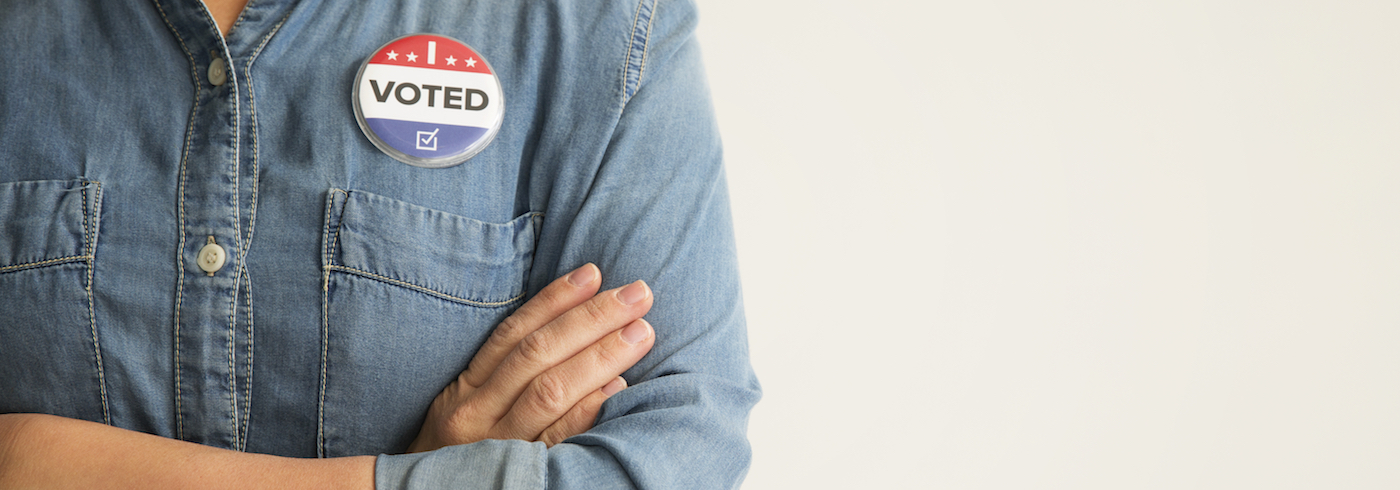Politics, the Doubter, and the Kingdom of God
Keeping God’s message in focus in an election year
Just this week, I was talking to a student at a Bible college who told me he is experiencing an enormous amount of doubt. He has been plugged into a church for at least a decade, but is starting to wonder whether the God he was inviting everyone to meet is actually real.
“My counselor has helped me summarize my doubts around faith with two words,” he told me. “I feel disappointed and betrayed.”
It’s not surprising these emotions would be exasperated during an election year. People who see faith through a skeptical lens don’t have the sort of experiences with God that so many Pentecostals — and Protestants, for that matter — claim to have. Consequently, they tether the little faith they do have to those around them who claim Christianity. It’s the doubter’s last-ditch effort at holding onto a God they cannot see or feel.
The unfortunate reality for our doubting brothers and sisters is that election years are when evangelicals aren’t on their best behavior. Many of us get distracted and end up putting our hope in political powers. We argue on social media. We post memes with pride and certainty. And we sometimes mock, denigrate, and vilify those who disagree with us.
In all these things, we are attracting the attention of the faithful and the faithless. And it’s the faithless who are watching us closely. We have to remember that when our eyes aren’t on Jesus, we are bound to disappoint, and sometimes betray, those whose eyes are on us.
Will you be willing to give up the echo chamber of social media approval for the possibility of one doubter finding hope in the kingdom of God?
In 2016, former evangelical Blake Chastain started the #exvangelical hashtag. Like the student I mentioned earlier, Chastain grew up in a Christian household, went to a Bible college, and felt a call to ministry. In 2001, his doubts began to grow as he witnessed evangelicals’ unwavering commitment to George W. Bush and his decision to invade Iraq.
After a prolonged period of questioning, he left evangelicalism and became a self-professed agnostic. The hashtag started a movement that resulted in a podcast following of over 13,000 monthly subscribers.
Bradley Onishi, writing for the online news site Religion and Politics, observed, “Thus, according to Chastain, it’s no coincidence #exvangelical as an online movement formed in the wake of the election.”
This is not anecdotal. The #exvangelical subculture is growing. It is filled with progressive Christians, agnostics, atheists, and the religious “nones.” It is filled primarily with people holding liberal ideologies, who didn’t know how to fit their former faith into a bipartisan system. And they witnessed others do it with absolute confidence. I’m concerned that the more confidence we place in Nov. 3, the more spiritual graves we dig.
With all that said, there is good news for both doubters and faith-filled Christians every election year! There is a Kingdom that is not of this world — an option not on the ballot. In this Kingdom, greatness is associated with service, and power with surrender (Matthew 23:11; 2 Corinthians 12:9). In this Kingdom, everyone has been an outsider, and everyone is welcomed (Romans 3:23; 5:6–8; Revelation 22:17). In this Kingdom, the poor and marginalized have a place of honor (Luke 4:18–19; 14:15–24). In this Kingdom, every tribe and nation belongs (Revelation 7:9). In this Kingdom, there is comfort for those who mourn and rest for the weary (Matthew 5:4; 11:28). All this — and more — is true because in this Kingdom, there is a King whose policies revolve around redeeming people, rather than defeating them.
Don’t you see how the kingdom of God is an incredibly hopeful message to doubters and Christians who cannot fit their faith into a political party?
This doesn’t mean you, as a Christian, shouldn’t participate in the political process or that you should always keep your opinions to yourself. What we must remember, though, is that the election is not where we place our hope. It’s merely where we place our vote.
Your hope is on display, and the skeptics are watching. Will you be willing to give up the echo chamber of social media approval for the possibility of one doubter finding hope in the kingdom of God?
Before you publicly celebrate, or mourn, the results of the election, ask yourself whether your next social media post will be hurtful to the doubter who is watching — and whether your words point people to Jesus or push them away.*
*Influence is proud to partner with Preston Ulmer and The Doubter’s Club on a series of articles about spiritual conversations with non-Christian friends. The series appears biweekly on Fridays. Ulmer is founder of The Doubter’s Club and director of network development for the Church Multiplication Network of the Assemblies of God.
Influence Magazine & The Healthy Church Network
© 2024 Assemblies of God

